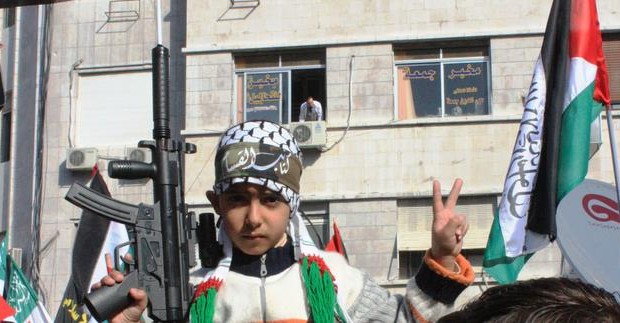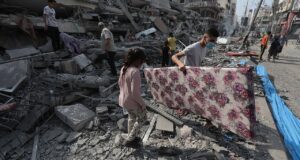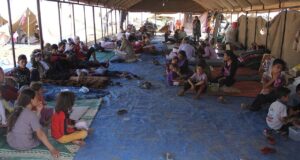By Raphael Levy, Research Assistant
15th August 2014, Security and Defence, Issue 3, No. 6.
Escalations in the Israeli-Palestinian conflict are, unfortunately, nothing new. Estimations at the time of writing are that almost 2000 Palestinians (figures for civilians and terrorists are still sketchy) and 66 Israelis (2 civilians and 64 soldiers) have died.[1] Every single innocent life lost is a tragedy that all sides must work hard to avoid. There is a predictable cycle of violence in Israel-Palestine conflicts – Hamas rockets and Israeli action are intertwined and at some point an Egyptian brokered ceasefire, an uneasy agreement, causes a relative calm and an end to the fighting as best it can in Israel-Palestine terms.
This conflict has been almost no different to any casual observer. Hamas rockets and Israeli air strikes became daily inevitabilities, running for the bomb shelter or being informed of an impending Israeli strike a regular occurrence in the lives of innocents. Western commentators and politicians fell over themselves to affirm the Israeli right to self-defence,[2] condemn Israeli aggression or accuse Israel of a disproportionate response.[3] The number of Palestinian deaths was thrown about in media circles and compared to the number of Israeli deaths as if somehow had more Israelis died the Palestinian deaths would be less tragic. Eventually an Egyptian-brokered ceasefire was accepted by Israel and to some, Hamas’ breaking of it and continuation of the cycle of violence is also nothing new. To even the most casual observer of escalations in Israel and Gaza, this all has an all too familiar feel. A sense of déjà vu can be felt because you know what? We have seen all this before.
However, this conflict comes with what appears to be a shift, a significant change from Operation Pillar of Cloud. Egyptian support for Hamas is not as clear-cut as it was in 2012.
Back in November 2012, Hamas enjoyed strong support from across the border in Cairo. Morsi’s Muslim Brotherhood, of which Hamas is the Palestinian offshoot, were in power. The November escalation saw condemnations of Israeli aggression and expressions of solidarity with Gazans,[4] the Egyptian ambassador recalled to Cairo and the Israeli ambassador to Egypt summoned to protest the assault.[5] It was rumoured that the peace treaty with Israel was under threat and it was clear where the Egyptian political leadership stood on the escalation happening just across the border. Support for Hamas from Morsi was unsurprising – as mentioned, Hamas is simply the Palestinian Muslim Brotherhood whilst ideologically there are vast similarities. A trust between Hamas and Morsi existed that helped the 2012 ceasefire take place, as tenuously and uneasily as usual.
That trust has disappeared, whilst Egyptian support for Hamas seems much less forthcoming. Sisi initially resisted calls to mediate a ceasefire and Hamas complained that Egypt did not even consult them on it when one was brought to the table.[6] The current mood within Egypt is that Hamas is to blame for the current Israeli ground operation in Gaza,[7] which is a far cry from previous positions. Morsi’s support for Hamas was much more evident, whilst former President Mubarak saw Hamas as a Palestinian faction rather than an offshoot of the now deeply resented Muslim Brotherhood. It is not so much that Egypt are the new ‘Stand With Us” (the worldwide pro-Israel advocacy group), but that their suspicion and dislike of Hamas is growing. Rather than offering support to Hamas, the new Egyptian government has been taking steps to stop the smuggling of weapons into Gaza via the extensive tunnel network used by Hamas to bypass the Egyptian and Israeli blockade of the territory, whilst the Rafah crossing has remained mainly closed (expect for urgent medical supplies in recent days) since the overthrow of Morsi last year.[8] Add to this the trial of Morsi for his alleged links to Hamas[9] and it seems ever clearer that Egypt is no longer on the side of Hamas in Israel-Hamas conflicts.
Feeling in Egypt may remain firmly supportive of the Palestinian cause, but feeling toward Hamas has most certainly changed. To a large extent Egyptian attitudes toward the terrorist organisation are aligning with Israel’s. This is reflected most effectively in the Egyptian media. France 24 ran the headline ‘Egyptian Media Applauds Israel’s Gaza Offensive’.[10] Whilst it may be exaggerating the situation slightly, this give us a good representation of the significant change in relations between the Palestinian Hamas and Egypt.
[1] http://www.bbc.co.uk/news/world-middle-east-28688179 [2] http://www.reuters.com/article/2014/07/18/us-palestinians-israel-obama-idUSKBN0FN22D20140718 [3] http://www.huffingtonpost.co.uk/2014/07/17/israel-gaza-nick-clegg-_n_5594357.html [4] http://www.theguardian.com/world/2012/nov/15/egyptian-president-condemns-israel-gaza [5] http://www.ynetnews.com/articles/0,7340,L-4305587,00.html [6] http://www.foxnews.com/opinion/2014/07/17/dramatic-shift-in-middle-east-alliances-egypt-israel-and-hamas/ [7] http://www.jpost.com/Operation-Protective-Edge/Egypt-blames-Hamas-for-IDFs-ground-operation-363300 [8] http://america.aljazeera.com/articles/2014/7/17/egypt-hamas-gaza.html [9] http://www.bbc.co.uk/news/world-middle-east-23464036 [10] http://www.france24.com/en/20140720-egyptian-media-applauds-israel-gaza-offensive/?ns_campaign=reseaux_sociaux&ns_source=twitter&ns_mchannel=social&ns_linkname=editorial&aef_campaign_ref=partage_aef&aef_campaign_date=2014-07-21
Raphael Levy is contactable at: raphael.levy@hscentre.org
Please cite this article as:
Levy, R. (2014) “Egypt: Israel’s unlikely ally”, Human Security Centre, Security and Defence, Issue 3. No.6
 Human Security Centre Human Rights and International Security Research
Human Security Centre Human Rights and International Security Research




